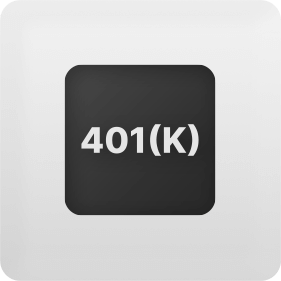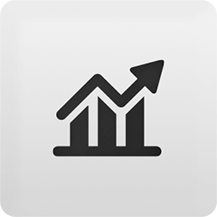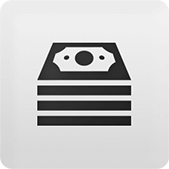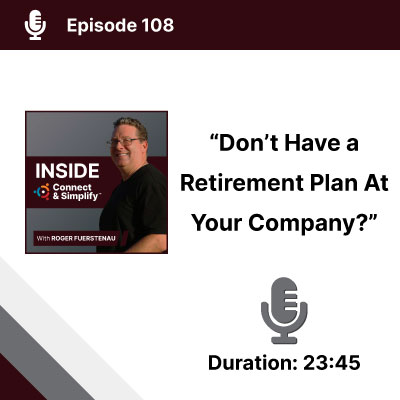The staff at The Benefit Companies-Connect & Simplify have always been wonderful to work with. Their response time to inquiries is very quick. All communications have been very professional and are an absolute pleasure to work with. -Jackie S
Wisconsin Small Business Retirement Plans Service
Specializing in 20-500 Employee Businesses
Offering a retirement plan to your employees has many benefits, including business tax reductions and attracting top worker talent. While the advantages seem obvious, the complexities of setting up and maintaining small business retirement plans are not. Which plan should I offer? What federal regulations do I have to follow? Enter Connect & Simplify.
Connect & Simplify, offered through The Benefit Companies, helps Wisconsin small businesses simplify the complex processes of employee benefits packages, including retirement plans, under one roof. Get started with our employee retirement plan service and reap the benefits of offering fulfilling retirement packages to your staff.
Have a question? Contact us today.





The Common Types of Employee Retirement Plans
- 401(k) Plan - Employees contribute a portion of their wages to individual accounts.
- 403(b) Plan - Offered by public schools and tax-exempt organizations. Similar to 401(k).
- Profit-sharing plan - Discretionary employer contributions or a share in company profits.
- Pension plan - Employers contribute to a pool of funds for a worker’s future benefit.
- SIMPLE IRA - Employees and employers contribute funds. Employee contributions are tax-deferred and employers make matching or nonelective contributions.
- SEP IRA - Mean for the self-employed or small business owners. Tax-deferred and tax-deductible contributions can be made for each employee.

Retirement Plan Broker For Wisconsin Employers
Effective retirement plans meet employee needs while providing large tax savings for employers. Retirement brokers from The Benefit Companies work with you to determine appropriate plans based on your company’s goals and objectives.
Our retirement plan services help small businesses attract top talent, improve workforce stability, relieve stress and increase company productivity, all while creating a layer of security for your workforce.
Why Small Business Retirement Plans Matter
Employee retirement plans help Wisconsin small businesses gain a competitive edge and promote employee well-being. Our Wisconsin retirement solutions cater specifically to the unique needs of small businesses. Here's how partnering with Connect & Simplify’s retirement plan specialists can benefit your organization:
- Building a Stronger Workforce: Implementing an employee retirement plan service attracts top talent and enhances retention.
- Cost-Effective Solutions: Our retirement plan specialists guide you through recent changes in regulations and low-cost options, making it easier than ever to implement effective Wisconsin retirement solutions without breaking the bank.
- Enhanced Company Culture: Comprehensive retirement plans show your employees you value their contributions and invest in their long-term success.
- Compliance and Peace of Mind: Our retirement plan specialists allow you to focus on growing your business while we handle the intricacies of implementing the plans.
Prioritizing employee retirement plans can help Wisconsin small businesses create a more secure and motivated workforce. Our retirement plan specialists help you design and implement the ideal employee retirement offering for your unique needs.
Employee Retirement Plan Services - Compliance Guaranteed
Administration and compliance can create unnecessary burdens for Wisconsin employers. Accurate and timely processing is crucial to maintain compliance and reduce risk. Our best-in-class third-party-administered employee retirement plan service handles plan compliance so you can focus on growing your business.

Don't Have a Retirement Plan At Your Company?
How Your Wisconsin Business Can Offer Employee Retirement Plans
This podcast was recorded at Connect & Simplify™ HQ in Brookfield, Wisconsin. We help hundreds of businesses in Milwaukee, Madison, Green Bay and other state-wide cities with their employee retirement plans. For many businesses with 50-250 employees, Connect & Simplify™ is a profitable or more effective alternative to full-time employees dedicating all or some of their time to managing the chaotic and complex problems of employee retirement plans. Contact us for a FREE consultation.
Wisconsin Retirement Benefits Company Explains Offering 401(K) Plans
There are more benefits to offering employee retirement plans at your company than you might think. Employee 401(K) plans can effectively attract and retain top talent and improve employee satisfaction. Retirement plans can also help owners take advantage of tax savings to potentially make the cost of offering a 401(K) for your employees FREE!! Retirement plans have become an expectation of employees in today’s job market. We often find many Wisconsin small businesses are unaware of how easy it is to offer employee benefits packages.
Listen as Roger Fuerstenau sits down with our newest teammate, Paul Dowd, CIMA®, AIF® to discuss offering employee retirement plans. Hear why your Wisconsin small business should have a retirement plan if you don’t already have one. When is the right time to add one? Do you want to keep top employees? What are some of the benefits? Get the answers to these questions and more by tuning in to this week’s episode.
Outline:
- Why you should consider offering retirement plans for employees.
- Why you haven’t considered offering retirement plans because of cost.
- What benefits do retirement plans bring employees.
- What benefits do employers receive for offering employee retirement plans.
- How 401(K) plans help attract and attain important employees.
- How small businesses can save more in personal taxes than it costs to run their retirement plans AND receive tax credits just for starting one.
- How employers can get tax-deferred treatment on a large sum of their income.
- Why the costs of offering retirement plans have decreased in the last 5 years.
- Why the beginning of January could be the best time to roll out retirement plans.
- How you as an employer can start offering retirement plans to your employees.
- How much time is required to start offering employee retirement plans at your company.
- What Wisconsin companies have said about beginning to offer 401(K) retirement plans.
- How employers could defer $200,000 a year for offering employee retirement plans.
- How employers can offload the stress of managing employee retirement plans by hiring a benefits company.
Frequently Asked Questions
Popular retirement plans to offer employees include 401(k)s, 403(b)s, profit-sharing and pension plans.
401k pricing is based on the services selected for the plan. Actual pricing is usually based on a formula comparing total assets in the plan, average participant balances, number of participants and the administrative duties necessary to run the plan.
Example pricing below:
- 10 employees: $2,200
- 20 employees: $4,600
- 50 employees: $8,200
- 100+ employees: an audit will be required. The plan will receive custom pricing based on plan design, average balance per employee and total assets.
There is no mandated requirement for retirement plan sponsors to benchmark their plans on a set timeframe. However, the Department of Labor will assume plans will have a benchmark study done for fees and services every 3 to 5 years.
A well-designed match program can create a powerful incentive for employees to join the plan. Matching programs can be designed to make a plan qualify for Safe Harbor protection related to compliance testing requirements.
There is no requirement for an employer to match employee contributions.
A quality advisor will coordinate services between plan vendors to confirm all employee notices are created and delivered on time.






